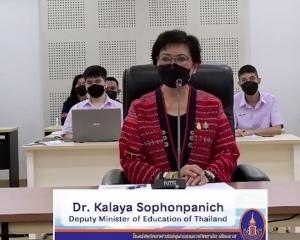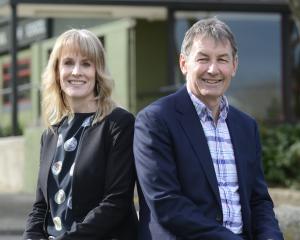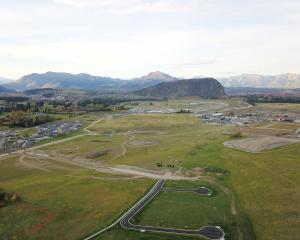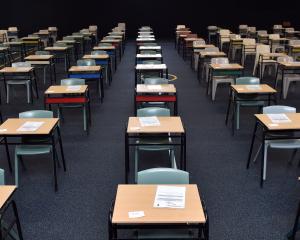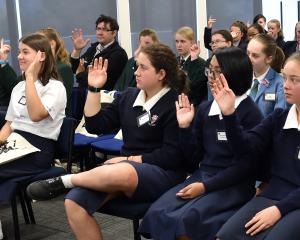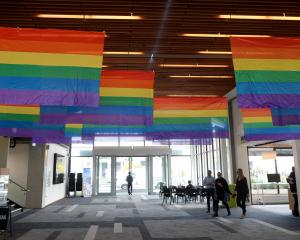''Basically an aftershock of the earthquake.''
That is how University of Canterbury acting pro-vice-chancellor (education) Prof Niki Davis described the shake-up of education in Christchurch.
That, for better and for worse, sums up the impact.
The quakes irrevocably changed Christchurch in all sorts of ways, and education has not been excluded.
For a start, population patterns have changed, notably in the east. Many streets, where once children lived and played, are abandoned. Other areas are growing. There was no way the status quo could, or should, remain.
Inevitably, this means understandable heartbreak for many. Because schools are so central to a child's life and because families and communities invest such loyalty in them, disruption is especially hard to take. As the principal of Phillipstown Primary School - which is set to merge with another school on another site - said, school can be a safe, secure, nurturing place. Schools are far more than just buildings where pupils are taught.
That social and emotional connection is part of the reason why the announcement last year on planned closures from Education Minister Hekia Parata received widespread condemnation. Vehement opposition was to be expected whatever was proposed, but that first stage was inept, with mistakes on basics like roll numbers and the condition of buildings, as well as bungling with the timing of the announcement itself.
This time, the approach has been measured and cautious. There has been plenty of build-up, careful planning and lots of consultation. In fact, proposals have been scaled back to the degree that the suspicion is raised that changes might not, in the long run, be as radical as they perhaps need to be. Strong Christchurch support for the Government was crucial to its success in the last election and, after the mess of the last announcement, it had much ground to make up.
When you examine the numbers, the scope is not as great as it might have been (it should be noted this week's announcement was of interim decisions, with a chance for more responses until March 28 and final decisions by late May). The closure of seven schools affects 607 children.
Twelve schools are to merge into six. Twelve keep their individual identity after originally being cited for merger, eight schools are being rebuilt and relocated, and five new schools will be built. Another five schools in Aranui may also be combined to form a new Year 1-13 campus, although the complexities of this has prompted further consultation. Another two schools closed voluntarily. Of the 215 schools in greater Christchurch, 177 are unaffected.
The reduced numbers will not, of course, stop an outcry, as evidenced, for instance, by school reorganisations on the Taieri and in South Dunedin. Labour in power became wary of community resistance to compulsory closures and mergers and National will be the same. Interestingly, however, many Taieri families would not want to return to the former school structure. Mergers in South Dunedin need to be more settled before the same can be said there. One suspects, though, that in time Christchurch will adjust positively.
Labour and the Greens are awkwardly placed with the latest proposals. Labour says the plan to bring forward school closures from 2015 is wrong, and the Greens say decisions should be left until after proper census data is collected. But, while it is true schools were earlier told they would have more time, decisive action is needed. Parents, teachers and pupils, surrounded by so much uncertainty, need clear direction. And schools scheduled to close in three years' time would likely have become lame ducks, with falling morale and diving rolls. The people of Christchurch have had far too much of not knowing what is happening to their lives, their homes and their future.
Education, which will see $1 billion spent on new or rebuilt schools, is but one area undergoing seismic shifts in Christchurch. Between 2010 and 2012, rolls fells by 4500 pupils (8.1%), with some areas well above that average. Change had to come and, whatever the short-term agony, will have to be embraced. There may be some tweaks, possibly even bigger modifications, to the plans announced this week - but Christchurch must eventually make the most of the chance to improve its schools.

